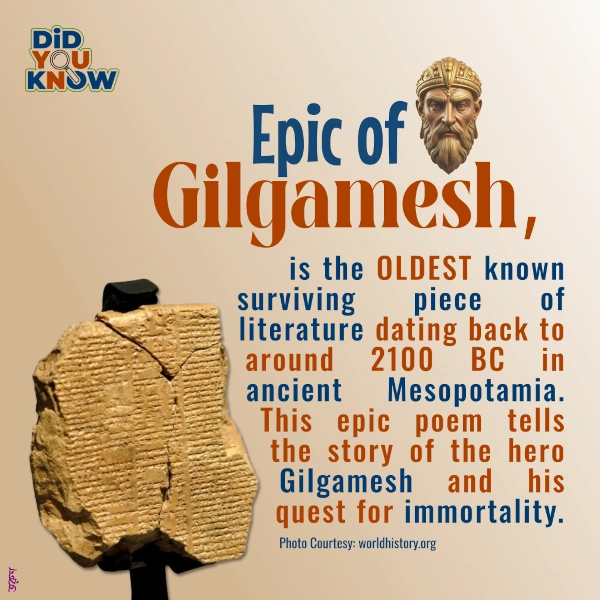
Exploring the Ancient Epic of Gilgamesh
The Epic of Gilgamesh is the world’s oldest known piece of literature, dating back to around 2100 BCE, from ancient Mesopotamia—modern-day Iraq. Originally composed in Sumerian on twelve clay tablets in cuneiform script, this epic poem spans over 3,000 lines. It’s an impressive volume for its time, capturing timeless themes of friendship, heroism, and the search for immortality.
Written during the early Bronze Age, when literacy was rare and texts were preserved in durable clay, the epic was passed down orally and gradually recorded, reflecting how storytelling shaped early civilizations. Gilgamesh himself was likely inspired by an actual historical king who ruled the city-state of Uruk. The epic’s survival through thousands of years offers us a rare glimpse into the spiritual and philosophical life of the ancient world. It’s an enduring reminder of humanity’s age-old quest for meaning and purpose.
Why It Matters Today
Beyond its historical significance, the Epic of Gilgamesh raises philosophical questions about human mortality, the search for purpose, and the acceptance of life’s limits. This ancient story mirrors modern struggles with self-identity, leadership, and the meaning of life. By attempting to confront his fears and find immortality, Gilgamesh ultimately learns to appreciate the legacy one can leave behind—a timeless message about how life’s value is found in what we contribute to the world.
Fun Facts
- This ancient epic was written on clay tablets in cuneiform script, the earliest known writing system.
- Gilgamesh’s city, Uruk, is often regarded as the world’s first major urban center.
- Themes from The Epic of Gilgamesh have influenced literature across millennia, echoing through works like The Iliad, The Odyssey, and even the Bible.
For more journeys through ancient texts and the wisdom they hold, explore our “Historical Wonders” category! Dive into the stories that shaped the world’s oldest civilizations and discover the timeless lessons they left behind.

We choose not to clutter your experience with ads. If you’d like to support us, consider showing some love by liking this post on X (Twitter) or on Instagram!
Share this Post, Spread the Knowledge!
